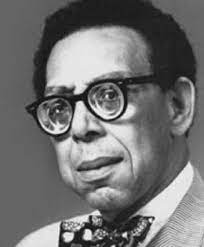Resurrection Through Poet’s Eyes
by G.S. Augustine
The Only Truly Unique Event
Americans use the word “unique” badly. We say about someone: “He is certainly unique”—which actually means, “Out of the seven billion people on planet earth, you might only find a couple million like him.” Something unique is actually quite rare. There is however something that is unique in the strictest sense of the word: The resurrection of Christ.
Oh the Bible does depict the resurrection of some people. And we’ve all heard stories of near death experiences where people came back to life. But these all are subject to death again. When Jesus rose, he rose to an indestructible life, never to die again. What’s more, he conquered death not just for himself but for all who would call him Lord.
Water Shed Events Have Implications
But knowing this doesn’t do us much good if we ignore its implications. If live our lives as if that had no present affect, it is only table talk. Fallen people inhabit this world. Disease and death plagues creation. Apart from what Christ has done, anything we do will lead us to a sense of loss, emptiness and despair. Great poets over the centuries understood this. They often used the image of night and day to speak about loss and hope. And when Christ was not in view, hope is only temporary and loss the final word.
W. H. Auden, in his famous poem “A Walk After Dark,” has had a long day distracted by life’s issues. But on his walk home after dark he confronts a deep sense of trouble and judgment just around the corner:

A Walk After Dark
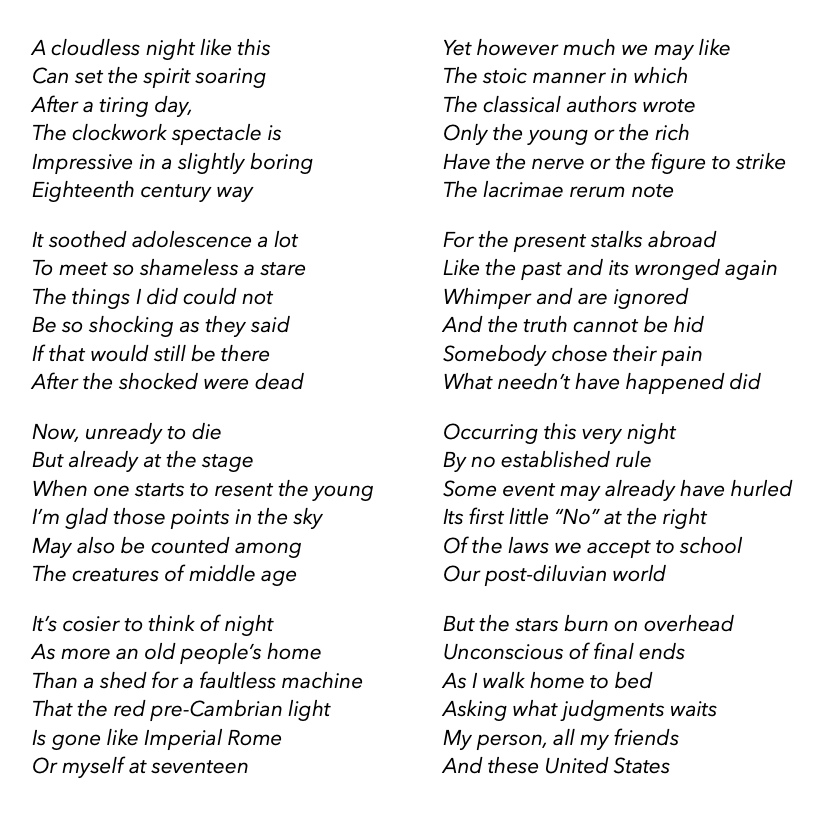
Night only reminded Auden that the distractions of the day were just that—distractions from trouble. When in moments of clarity, he would see the world for what it was.
Hope Based On Creation Only Temporary
But sometimes poets do look forward to the dawn with a sense of hope. In Peter Knight poem, he describes the pale moon as “a cold hearted orb” ruling the night. However he does look forward to healing in the morning.
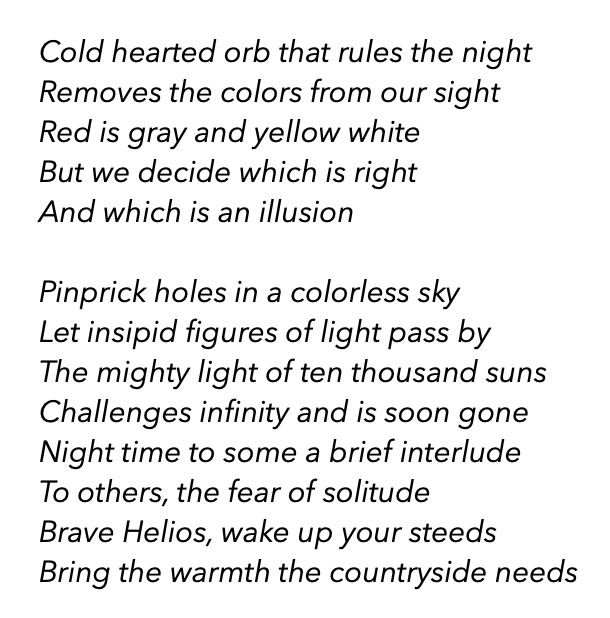
However, Knight does not really think the rising sun is anything but a temporary fix and ultimately an illusion. The cold hearted orb will have the last word. His poem ends:
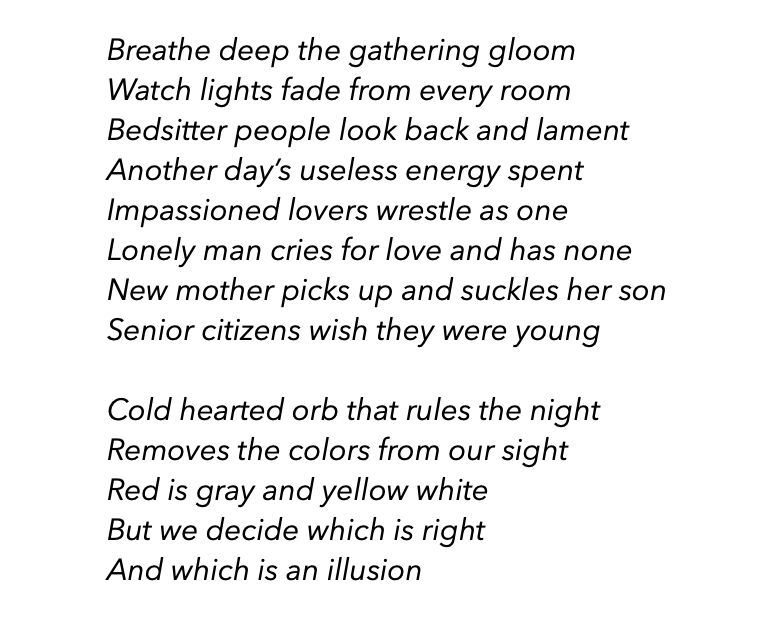
Loss Incites A Search
The sense of loss this realization brings causes us to seek something to fill the emptiness. We learn however that seeking does not really lead to finding. That only ends in an ache we can’t seem to relieve. In the late 1960s, Simon and Garfunkel cut the album “America.” It was not as well known as other albums but striking poetry described the search for something to fill the emptiness. In the title song, Paul speaks to his girl friend, Kathy, who in his real life became his first wife.
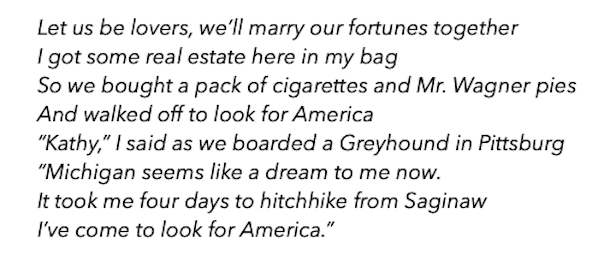
But for Paul Simon the looking would be futile not only for himself but for all the rest of us:
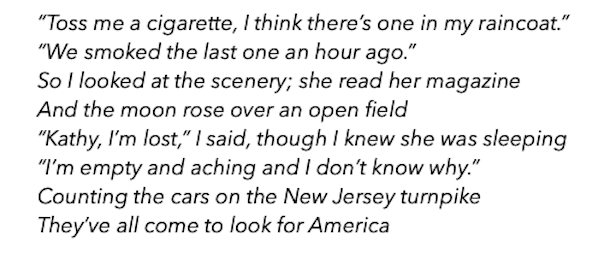
Reality Overwhelms Distraction
When the distractions of the search no longer distract, loss stares us in face. A later track on the same album describes old friends sitting together in a park as if death is near.

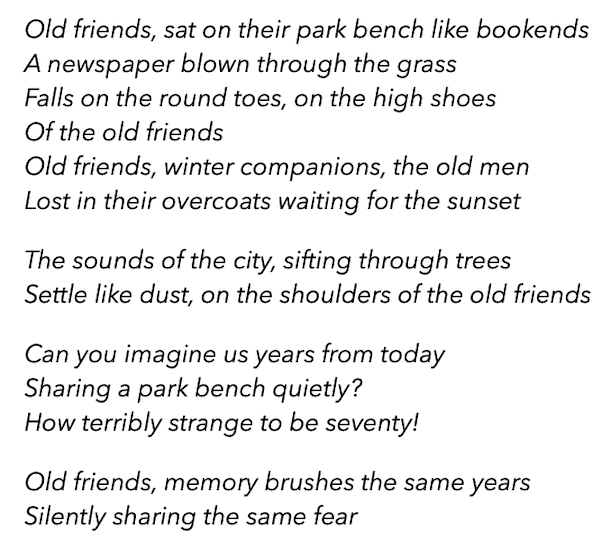
Simon caps off the sense of utter loss in the next track of the album. There he writes:
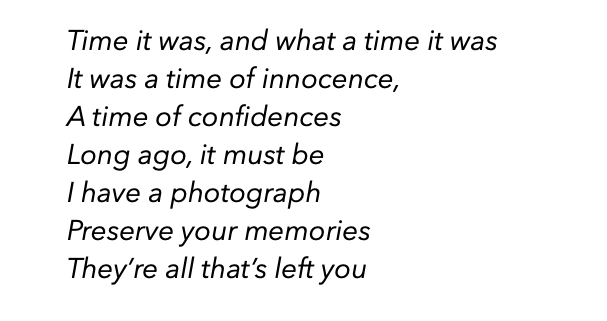
Loss Is Real No Matter The Faith
What is important to keep in view is that these poets are not wrong. This fallen life really does have no where to go. It really does not, in an of itself, provide any real sense of hope. Jesus even told us this was the case. In John 16, Jesus tells his followers: “In this world you will have trouble. But be of good cheer, I have overcome the world.” Trouble permeates this world but the one who overcame gives us hope.
Jesus meant for his followers to hang on to the fact that he overcame the world through his resurrection. He would overcome all that kills life both physically and emotionally. He would also reconnect us to the one who is the Creator of all life. When poets who believed this wrote, they were not unaware of the trouble of this life. However, Christ’s resurrection also fused hope in them .
The Caged Soul
Gerard Manley Hopkins described the situation the human spirit finds itself in as a bird trapped in a cage.
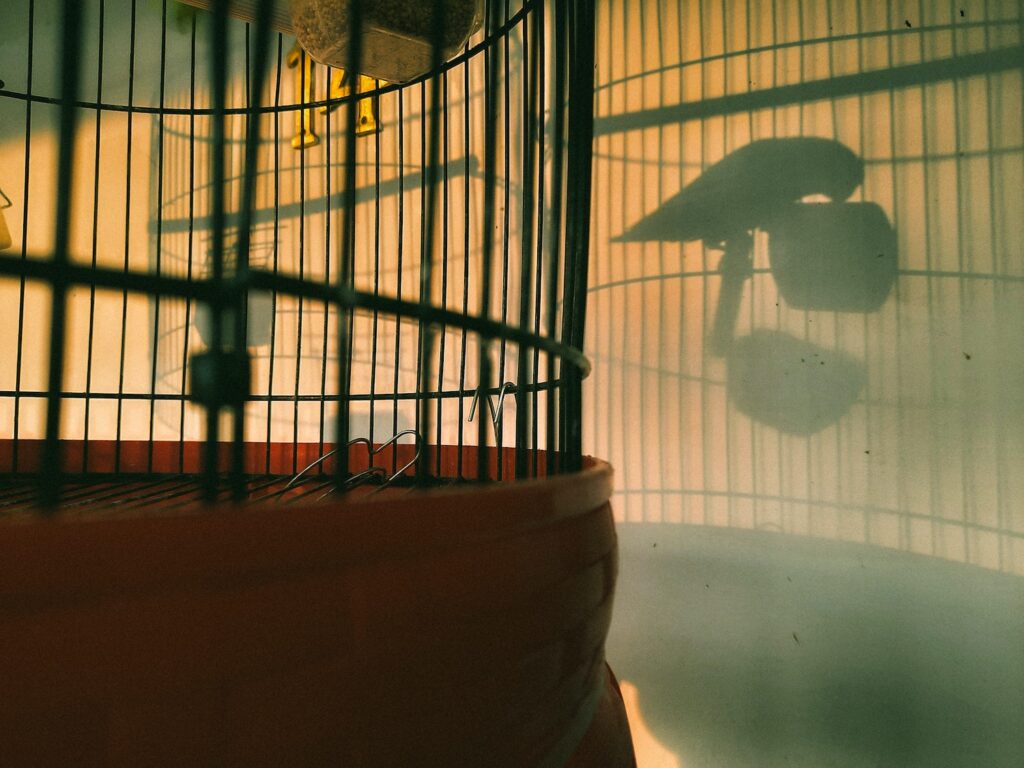
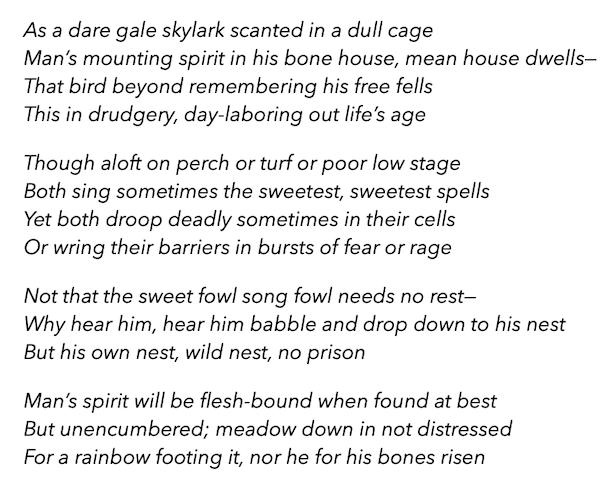
Hopkins knew that escape from the body was not the goal. God created us to forever live life in a physical body. The body is not the problem. However sin and loss encumber it. Resurrection must set it free. Like a rainbow at the foot of a meadow that lifts its beauty skyward, resurrection insures genuine freedom.
Loss Cannot Destroy Resurrection Hope
But it wouldn’t be enough just to know this or even believe it. This hope of resurrection has to infuse each moment of life. It is to give purpose to all our endeavors and plot the direction of our lives by that destiny. If that happens, we find that it is right and good to express our individual identities. But our lives also become fused with Christ who is playful in us and pleasurable to God. Elsewhere Hopkins writes:

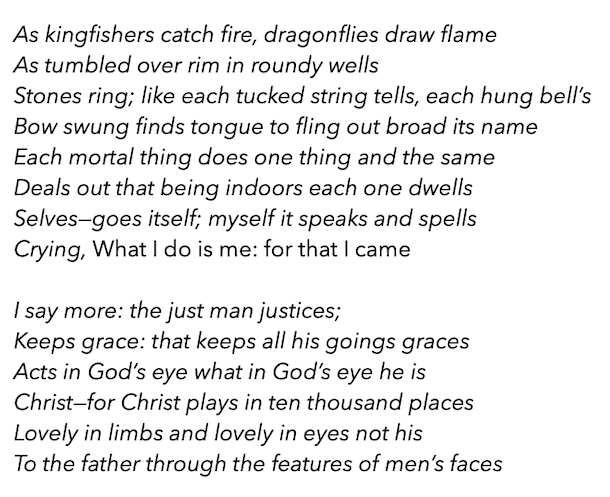
Delight Exists As Well
When the resurrected life of Christ fuses with our lives, purpose fills the empty vacuum. And not only with purpose but with a sense of delight and even wonder. All of a sudden the world starts to look differently—more beautiful, more inviting, more like home. Louie Armstrong’s jazz song “Wonderful World” describes this change of perspective well:
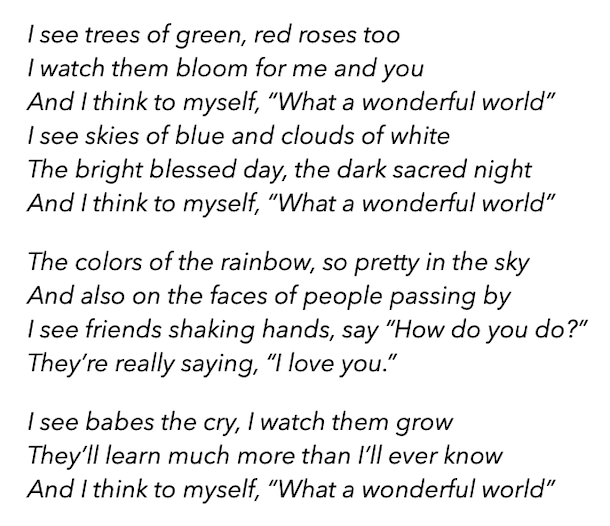
Permanent Delight Requires God’s Glory
But it is the hope of resurrection that allows this perspective to awaken. Apart from God, this wonderful world has a dark ending. But when we see it fused with God’s glory, healing goes deeper than all its wounds. Hopkins again provides the insight:

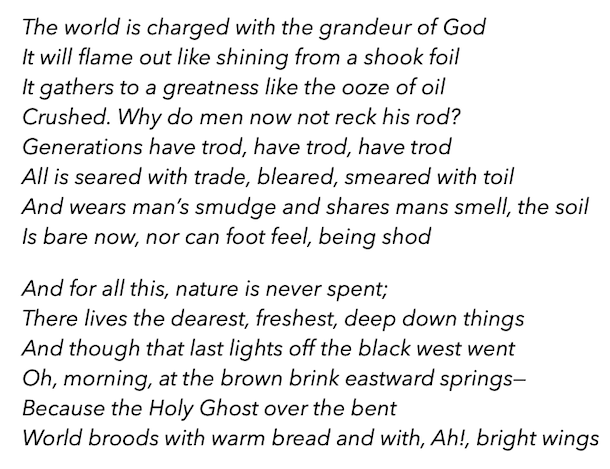
Bible Says the Same
This is of course, is exactly the sentiment of the psalmist in Psalm 19. He sees the night not as a vault of vast emptiness but of the setting for the glory of God:
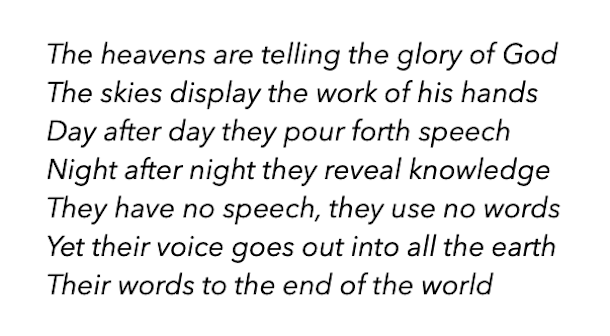
But the psalmist doesn’t leave it there. It’s not just that God is present with us in the night. He has a day in which hope will warm all of creation. It brings a well-being that we have longed for but have not yet grasped.
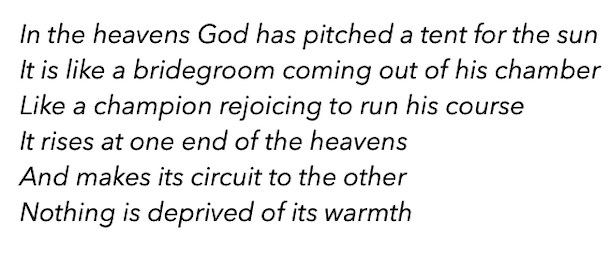
Hope Of Resurrection Lived Out Today
This is why I believe the gospel of Jesus Christ so amazed the Apostle Paul. He was so adamant that we live our lives in the power of the resurrection of Christ. All that goes with the world loses power to control. Violence and war, disease and death no longer have the last word. Heartache and sorrow, pain and lost, hopelessness and despair vanish on that day. Christ ends it by calling his people out of tombs to clothe themselves with everlasting life.
But there is more. Right now we could live in that power by making every decision as if resurrection was the most important consideration. If that power would direct every course we take, the fear of death would no longer haunt us. Resurrection would shape our character and identity; freedom would be the air we breathe. Paul pleads with us to frame our lives around this idea when he says in 1 Corinthians 15:
I declare to you brothers and sisters, that (this present) flesh and blood cannot inherit the kingdom of God, nor does the perishable inherit the imperishable. Listen, I tell you a mystery: we will not all sleep, but we will all be changed—in a flash, in the twinkling of an eye, at the last trumpet. For the trumpet will sound, the dead will be raised imperishable, and we will be changed. For the perishable must clothe itself with the imperishable, and the mortal with immortality. When the perishable has been clothed with the imperishable, and the mortal with immortality then the saying will come true: “Death has been swallowed up in victory.
O death where is your victory? O grave where is your sting? …
Thanks be to God! He gives us the victory through Jesus Christ our Lord. Therefore stand firm; let nothing move you (live as if this is true!) Always give yourself fully to the work of the Lord, because you know that your labor in the Lord is not in vain.
Paul the Apostle in 1 Corinthians 15:50-59





